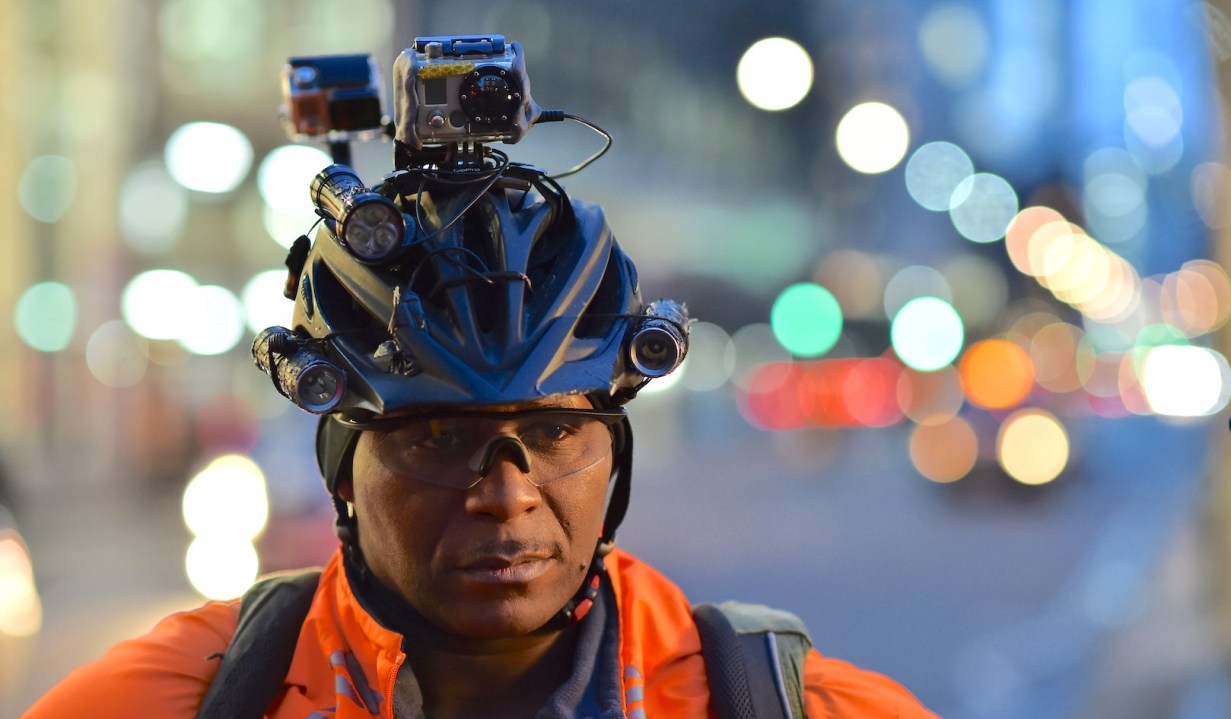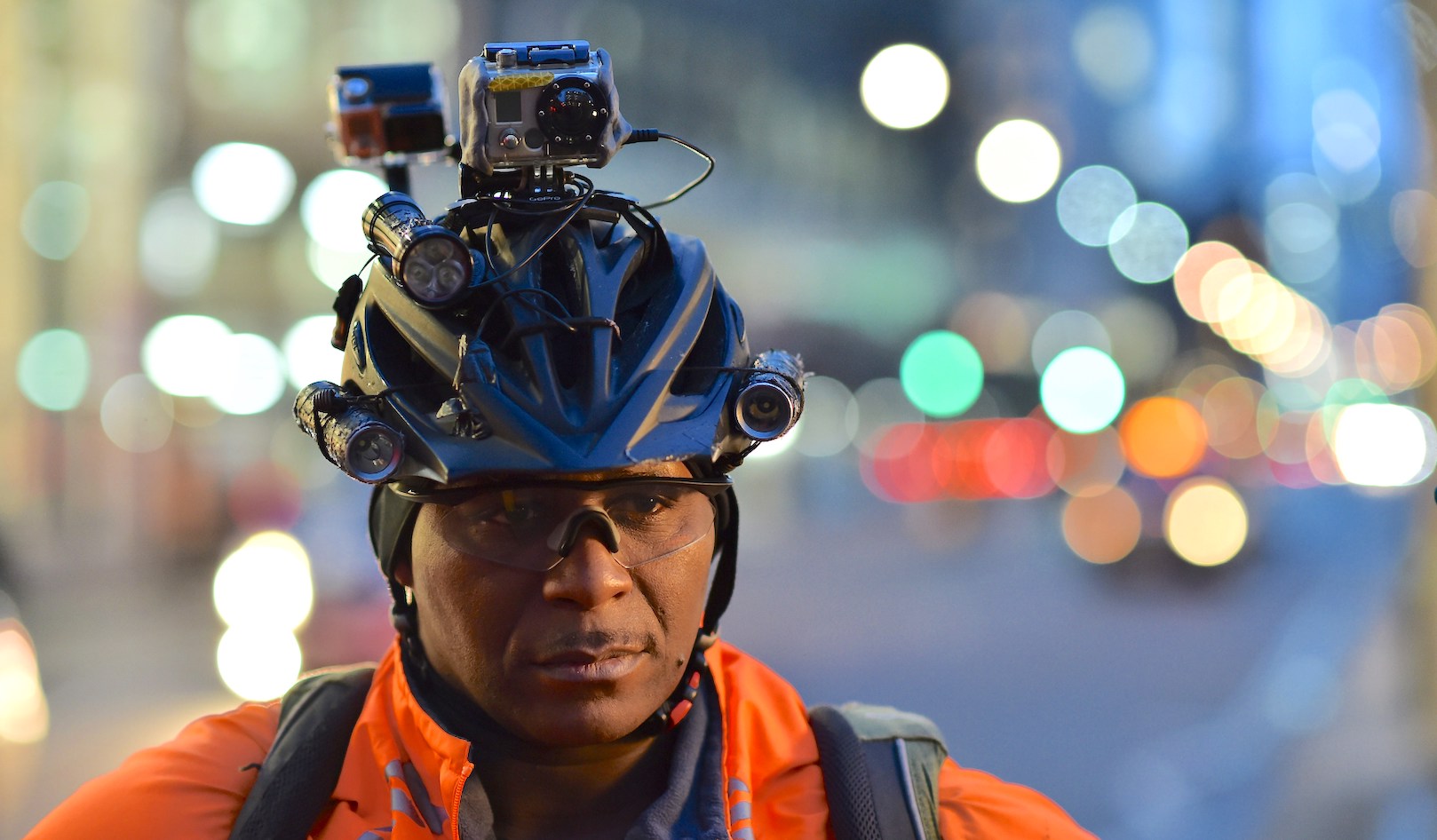Do you ever break the law when driving? According to surveys, quite a few of us do – three in five drivers admit regularly speeding. And if that’s you, then be careful: Mike van Erp is out to get you. You may already know Mike. He’s the media-savvy cyclist (better known as Cycling Mikey) who has become a minor celebrity for his dashcam videos of rule-breaking drivers in London. Now his niche hobby is catching on.
‘There were almost 15,000 reports last year that led to the police taking action’
‘I don’t think I’m even in the top ten cyclists reporting bad drivers in London,’ Cycling Mikey tells me over the phone. ‘There were almost 15,000 reports last year that led to the police taking action. And I only submitted 383 reports in total.’
I first became aware of the phenomenon of lycra-clad informants some months ago when an acquaintance was fined for using her mobile phone at a red light. She was told that the footage had been recorded by a cyclist who reported her to the police. Legally, she was bang to rights. But it made me think: how many motorists are aware they could end up reported by their fellow road users – and with such enthusiasm?
‘I think of it as citizen reporting, rather than activism,’ says Tim Wall, a cycling advocate who has run training seminars on reporting bad drivers. Like other ‘reporters’ (they strongly reject the term ‘vigilante’) he got into it after being exasperated with impatient motorists who fail to leave a safe distance when whizzing past cyclists. Watching the numerous ‘close pass’ videos popping up on social media, it’s not hard to understand Tim’s outrage. Yet according to one enthusiastic reporter (600 drivers caught), around 50 per cent of the footage submitted to police forces is of a very different thing entirely: drivers on their phones.
Cycling advocates point to statistics showing that mobile phone use behind the wheel can be fatal (by some estimates, it’s as bad as drink driving). Around two cyclists a week are killed on British roads and a further 84 are seriously injured, with distracted drivers being the most common cause of death. But while someone using their phone in stationary traffic may well be distracted, are they really risking lives?
Tim Wall attributes the rise in phone reports to the ease of catching them. ‘If you’re filtering past cars when they’ve stopped, you will see who is on their phone,’ he says. Indeed one cyclist tells me they recently filmed ten phone users in a single traffic queue – and reported all of them. What’s more, reporting isn’t the end of it. Inspired by Cycling Mikey, many cyclists choose to post the footage on social media and YouTube. Their theory is that this awareness-raising strategy will encourage a much larger number of motorists to follow the law and drive safely.
Awareness is one thing, but is public shaming really justifiable? ‘People have a misconception that their car is a private space,’ says one cyclist reporter. ‘If they are committing an offence in public they don’t have a right to privacy.’ In other words, if you end up on Jeremy Vine’s Twitter account, it’s your own fault.
I’m not so sure. Some of the videos seem to blur the line when it comes to shaming. In April, one cyclist posted footage of a driver, who was wearing a wedding ring, browsing an escort website. Can the cycling reporters really defend that? Cycling Mikey tells me he’d think twice about posting footage of someone using a gay dating app, on the basis that the person might not be ‘out’ to their family or colleagues, or may even be at risk of a homophobic blowback. He’s not convinced, though, that someone buying sexual services deserves the same sympathy.
Other cyclists tell me they try to post only the most severe offenders. But the fact that many drivers react with spittle-flecked fury after being caught (assuming they even notice, that is) also increases their chances of being posted. If there are consequences beyond points and a fine, then so be it.
Philosophising aside, every single cycling activist I spoke to agrees on one thing: this thriving subculture is going nowhere. ‘When I enthuse my friends about how it works, they buy a camera and see results,’ says one cyclist, commenting on the rapid growth in recent months. ‘And, of course, they tell their friends too.’ Bad drivers be warned, then. That careless scroll might prove more costly than you think – and potentially in more ways than one.







Comments